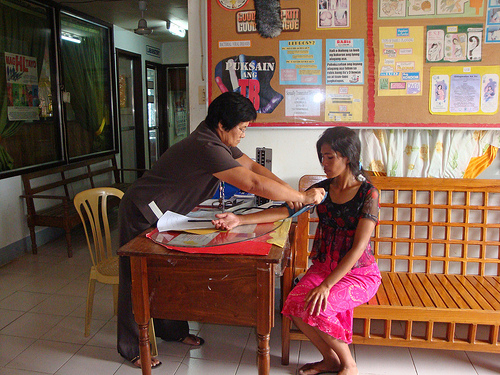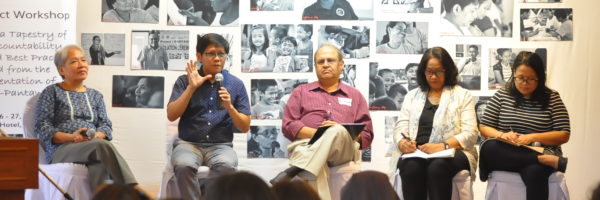
Guarding the Integrity of the Conditional Cash Transfer Program (CCT) for the Philippines (i-Pantawid) developed a model for civil society—government partnership for transparent and accountable implementation of the Patanwid Pamiliyang Pilipino Program. The project strengthened the integrity of CCT Program by instituting a strong and sustained civil society role in program implementation that is characterized by (a) use of social accountability approaches in monitoring and evaluation, (b) transformation of beneficiary-parent leaders to community facilitators for change, and (c) training of household beneficiaries in active citizenship. By the end of the Project implementation period in March 2018, there should be a well functioning CSO-government collaboration in CCT Program in Northern Luzon that would serve as model for the rest of the country.
In 2008, the Philippines’ Department of Social Welfare and Development (DSWD) began a new CCT initiative to improve the education and health outcomes of poor households, entitled the Pantawid Pamilyang Pilipino Program (4Ps). The initiative grew from covering 6,000 households in 2008 to four million in 2014. The 4Ps was designed to include partnerships with CSOs and activities geared towards involving beneficiary communities. However, the program activities failed to adequately empower communities to monitor the 4P and provide feedback to local health and education boards and the DSWD.
In the Northern Luzon region, CSOs have limited knowledge and skills to develop and apply social accountability tools to monitor and channel beneficiary experiences and feedback to the DSW. Family Development Sessions (FDSs), community-based platforms for sharing information on the 4Ps and collecting community feedback, also face serious weaknesses. More specifically, parent leaders participating in the FDSs lack the necessary skills to mobilize communities, engage with local governments and service providers, and develop action plans to improve public services.
The Concerned Citizens of Abra for Good Government (CCAGG), an NGO active in the social accountability arena in the for the last 25 years, was awarded a GPSA grant to strengthen CSO capacity in Northern Luzon to develop and apply SA tools to improve the 4Ps, and share lessons enabling replication of good practices across the country. This was implemented via four components geared towards:
- tracking funds and monitoring CCT programs to ensure transparency;
- empowering citizens to use social accountability mechanisms and participate in district-level meetings with local authorities;
- strengthening the capacity of CSOs to organize and form a coalition that is active in the CCT program; and
- collect and curate knowledge to improve project design and share lessons learned.
PTF Asia managed the knowledge and learning (K&L) component of this program, applying its institutional experience and utilizing its Advisers with wide and deep expertise to introduce global best practices and adapt them to local conditions and extract lessons from the project experiences by recording case studies, documenting best practices, and learning through monitoring and evaluation. PTF also managed the K&L component of another GPSA supported project, Transparency and Accountability in Mongolian Education (TAME) with partner Globe International Center in Mongolia.



